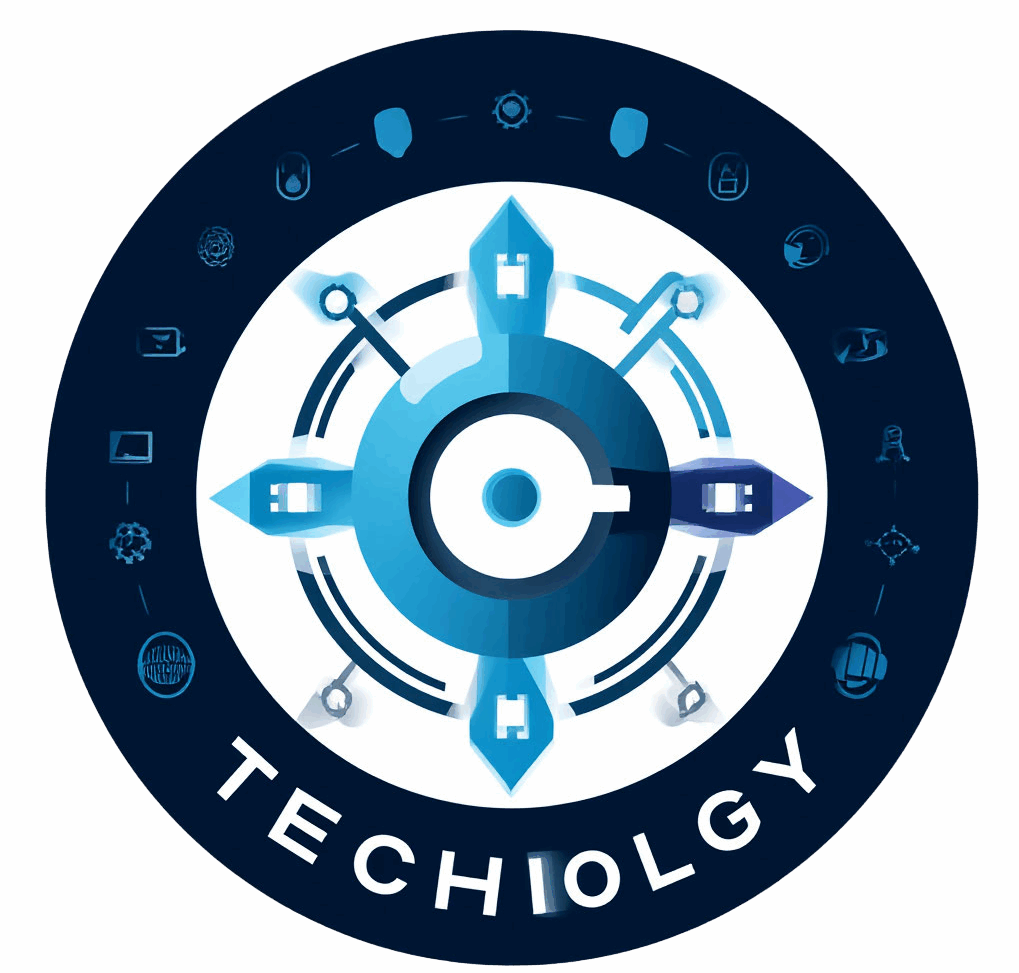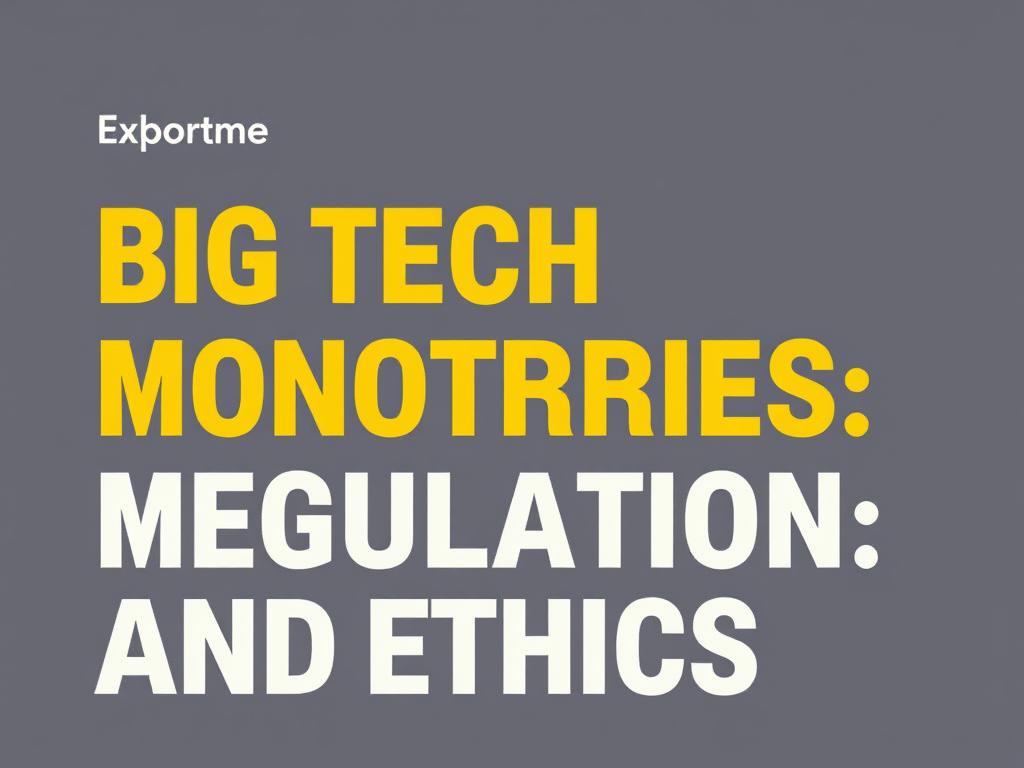Understanding the Rise of Big Tech Giants
The rapid growth of big tech companies over the past few decades has dramatically reshaped how we live, work, and communicate. Names like Google, Apple, Amazon, Facebook, and Microsoft have become synonymous with innovation, convenience, and powerful digital ecosystems. But with such immense influence comes serious responsibility, raising questions about big tech monopolies and their impact on competition, user privacy, and societal norms. As these companies dominate markets and gather unprecedented amounts of data, societies around the world are grappling with the need for regulation and ethical oversight to ensure a fair and safe digital future.
What exactly constitutes a monopoly in the tech sector? Simply put, it’s when one company holds excessive market power that stifles competition and controls product or service pricing – often to the detriment of consumers and smaller players. The intricate networks of platforms and services tied to big tech monopolies make it challenging for new companies to break in, limiting innovation and choice. But beyond the economic perspective, ethical concerns loom large, particularly around data privacy, misinformation, and the responsibility tech giants bear as digital gatekeepers.
The Challenges of Regulating Big Tech
Regulating big tech monopolies is no small feat. Governments and regulatory bodies must walk a fine line between encouraging innovation and curbing market dominance that can lead to unfair practices. One of the major obstacles is the global nature of these companies. A business headquartered in one country operates seamlessly across borders, raising jurisdictional issues and requiring international cooperation for any meaningful regulation.
Key Regulatory Approaches
Efforts to regulate big tech monopolies typically focus on several strategies:
- Antitrust Enforcement: Breaking up large companies or preventing mergers that would stifle competition.
- Data Privacy Laws: Protecting users’ personal information through frameworks such as the EU’s GDPR or California’s CCPA.
- Platform Accountability: Holding tech companies responsible for content moderation and transparency in algorithms.
Each of these approaches encounters pushback, whether because of the companies’ immense lobbying power, technical complexity, or concerns about unintended consequences.
Ethics in the Age of Big Tech
The ethical considerations surrounding big tech monopolies extend well beyond regulation. Many users unknowingly trade their privacy for convenience, while the algorithms that drive social media and search results can amplify misinformation or bias. Ethical questions also arise about surveillance, data collection, and how these corporations use their influence.
Core Ethical Issues in Big Tech
| Issue | Description | Potential Impact |
|---|---|---|
| Data Privacy | Collection and use of personal data often without clear, informed consent. | Loss of privacy, identity theft, manipulation of user behavior. |
| Algorithmic Bias | Algorithms may reflect or amplify social biases or misinformation inadvertently. | Discrimination, unfair treatment, distortion of information. |
| Market Dominance | Control over large segments of the digital market, limiting choice and competition. | Higher prices, fewer innovations, barriers for new entrants. |
| Content Moderation | Responsibility to monitor and manage harmful or misleading content. | Censorship concerns, spread of hate speech or fake news. |
These ethical dilemmas require companies to rethink their roles as neutral platforms and decide whether to prioritize profit or public good.
The Role of Consumers and Governments

While corporations bear significant responsibility, consumers and governments also play crucial roles. User awareness about privacy settings, data rights, and the implications of tech choices can drive demand for more ethical practices. Likewise, governments must tailor regulations that protect users without stifling innovation and ensure that tech giants act fairly and transparently.
Practical Steps Forward
- For Governments: Develop clear, adaptable policies that focus on transparency, data protection, and fair competition.
- For Consumers: Educate themselves about privacy tools, demand accountability, and support ethical tech alternatives.
- For Big Tech: Embrace responsible innovation, enhance transparency around data use, and actively combat harmful content.
Global Perspectives on Regulating Big Tech
Different regions approach this issue in unique ways. For example, Europe has been a frontrunner with strict privacy regulations and antitrust investigations, while the United States focuses on antitrust laws but is often criticized for lagging behind on privacy legislation. Meanwhile, countries like China maintain strong control over their domestic tech landscape, combining regulation with government alignment.
Below is a comparison table highlighting key regulatory features across these regions:
| Region | Focus | Typical Measures | Challenges |
|---|---|---|---|
| European Union | Privacy and Competition | GDPR, Digital Markets Act, antitrust fines | Balancing innovation with strict rules, enforcement consistency |
| United States | Antitrust and Innovation | Antitrust lawsuits, proposed privacy bills | Political divisions, lobbying influence |
| China | Government Control and Market Regulation | Strict data laws, state-owned enterprise involvement | Transparency issues, limited freedom of expression |
Future Outlook: Balancing Power and Responsibility
The future of regulating big tech monopolies and ethics is a balancing act. As technology becomes more embedded in daily life through AI, automation, and IoT, the stakes grow higher. Companies will need to focus not just on innovation but on fostering trust and fairness. Governments must coordinate internationally to avoid loopholes and promote standards that protect users universally.
Consumers, too, will become more savvy and demand a role in shaping the digital landscape. Ultimately, a cooperative approach among all stakeholders will be the key to creating a tech ecosystem that serves humanity’s best interests without compromising freedom, privacy, and fair competition.
Conclusion
Big tech monopolies have undeniably transformed our world, offering remarkable convenience and innovation, but they also bring significant ethical and regulatory challenges. Navigating this complex terrain requires a thoughtful mix of government oversight, corporate responsibility, and consumer empowerment. By fostering transparency, protecting privacy, promoting fair competition, and addressing biases, society can harness the benefits of big tech while safeguarding fundamental rights and values. The journey ahead might be difficult, but with vigilance and collaboration, it’s possible to reshape the digital future for the better.




